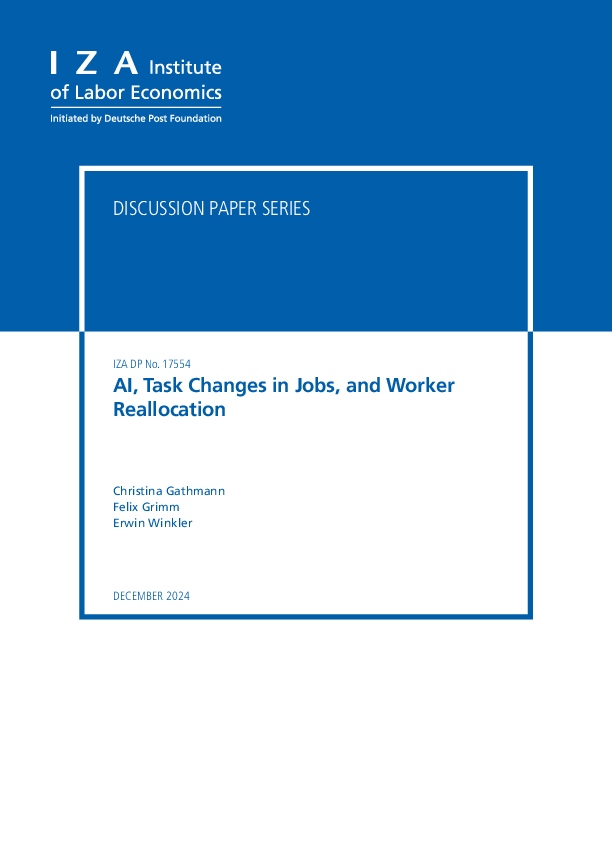AI, task changes in jobs, and worker reallocation

Gathmann, Christina ; Grimm, Felix ; Winkler, Erwinn
Institute of Labor Economics, Bonn
IZA - Bonn
2024
53 p.
artificial intelligence ; automation ; occupational organization ; job content ; wages
Discussion Paper
17554
Technology
https://docs.iza.org/dp17554.pdf
English
Bibliogr.
"How does Artificial Intelligence (AI) affect the task content of work, and how do workers adjust to the diffusion of AI in the economy? To answer these important questions, we combine novel patent-based measures of AI and robot exposure with individual survey data on tasks performed on the job and administrative data on worker careers. Like prior studies, we find that robots have reduced routine tasks. In sharp contrast, AI has reduced non-routine abstract tasks like information gathering and increased the demand for 'high-level' routine tasks like monitoring processes. These task shifts mainly occur within detailed occupations and become stronger over time. While displacement effects are small, workers have responded by switching jobs, often to less exposed industries. We also document that low-skilled workers suffer some wage losses, while high-skilled incumbent workers experience wage gains."
Digital
The ETUI is co-funded by the European Union. Views and opinions expressed are however those of the author(s) only and do not necessarily reflect those of the European Union or the ETUI.